About Brazil
There are no mandatory health requirements to enter Brazil. Precautions are recommended for yellow fever, typhoid fever, polio and malaria. We suggest that you contact your G.P. to obtain current advice and recommendations or call one of the organizations listed below. You are advised to have full health insurance coverage. Please note that if you enter Brazil through Peru, Ecuador or Colombia, you will be required to present a certificate of vaccination against yellow fever updated for immigration purposes. Avoid eating and drinking local products from street vendors and restaurants with suspicious practices of hygiene or refrigeration. It is advisable to drink only bottled water at all times.
Visa
Designed to help participants meet administrative requirements in certain countries, official invitation letters can be provided for entry or for other purposes upon request. Please wait long enough for this procedure. Please note that such letters do not commit the Organizing Committee to any type of financial support, accommodation arrangement, or guarantee an entry visa problem. Please note that invitation letters will be issued by the Organizing Committee after the participant has registered. Therefore, you must complete the registration form as soon as possible in order to obtain your visa in time for the Symposium. Participants are strongly recommended to ensure that they comply with all legal requirements to enter Brazil. In addition to a valid passport, an entry visa may also be required. Visas are required only for visitors who come from countries that require visas for Brazilian citizens. To obtain your Brazilian visa, see the instructions below.
According to the Ministry of Foreign Affairs, citizens of the following countries do not need visas:
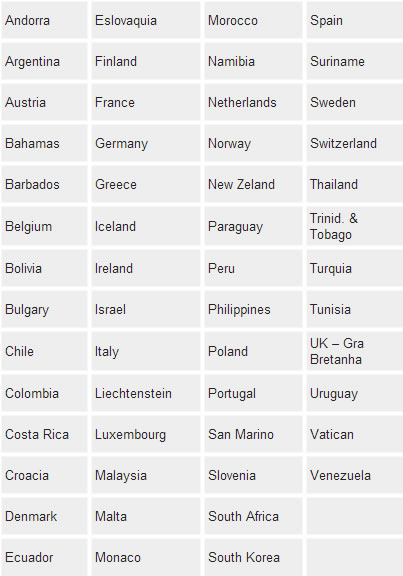
The following is very important to inform you that the Brazilian government can change these diplomatic conditions without prior notice.
PLEASE CHECK WITH YOUR NEAREST BRAZILIAN CONSULATE.
eVisas
The Electronic Visa of the Federative Republic of Brazil is a new Visa application made over the Internet, which Australian, Japanese, Canadian and American citizens can request to enter Brazilian territory.
Vaccines
The Brazilian government requires an international certificate of vaccination against yellow fever for travelers who have been in the last three months or who come from these countries:
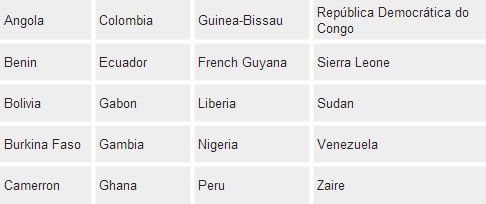
Therefore, you must obtain your certificate at an official yellow fever vaccination center designated by the respective state health departments of your city and / or country that administer yellow fever vaccines manufactured with the approval of the World Health Organization. Health.
In addition, we recommend this vaccination for all Brazilians, foreigners or tourists who intend to visit these Brazilian states:
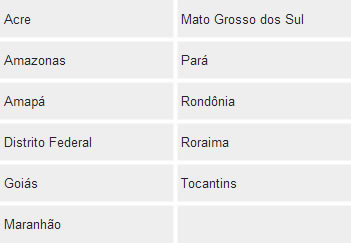
PD Vaccination must be taken (10) ten days before traveling, at least.
The official language is Portuguese. Some English is spoken, particularly in the main cities, but the closest thing to a second language is Spanish, with which you can usually make yourself understood.
The Brazilian currency is REAL. All banks and exchange offices accept traveler’s checks and foreign currency. It is advisable to take traveler’s checks in US dollars or currencies as this is exchanged more easily than other currencies.
Brazil covers several time zones, however, the Brazilian standard time is 3 hours before G.M.T. and 2 hours before in the summer (from October to February).
Brazil, especially Rio, has had a bad reputation for personal safety and many potential visitors have been postponed to travel there. Much of this reputation can be attributed to outlandish exaggerations, but it has had the beneficial effect of encouraging the various city authorities to do something about it. Now there is much more tourist police, which are much more useful for visitors, and there is a much better patrolling of problem areas. Although much more is being done to improve safety, knowledge of the following will decrease the risk to you and your belongings.
The electric current in most of Brazil is 110v. Many hotels have adapters if necessary, although it is recommended to bring your own travel adapters.
The climate varies from an arid thicket inland to an impassable tropical jungle in the northern Amazon rainforest and coastal beaches of the tropical east. The south is more temperate. Rainy seasons occur from January to April in the north (the average number of days when there is some rain is 22); From April to July in the northeast (the average number of days when it rains is 14); December to March in the Rio / Sao Paulo area (the average number of days when it rains is 10).
Airport taxes are generally included in the price of the ticket. To promote tourism and conventions, most hotels charge a non-mandatory fee that ranges between US $ 1.00 and US $ 7.00 per room per night, depending on the category of the hotel as a contribution to the Convention Bureau. If guests wish to deny payment, they must inform the receptionist upon departure.
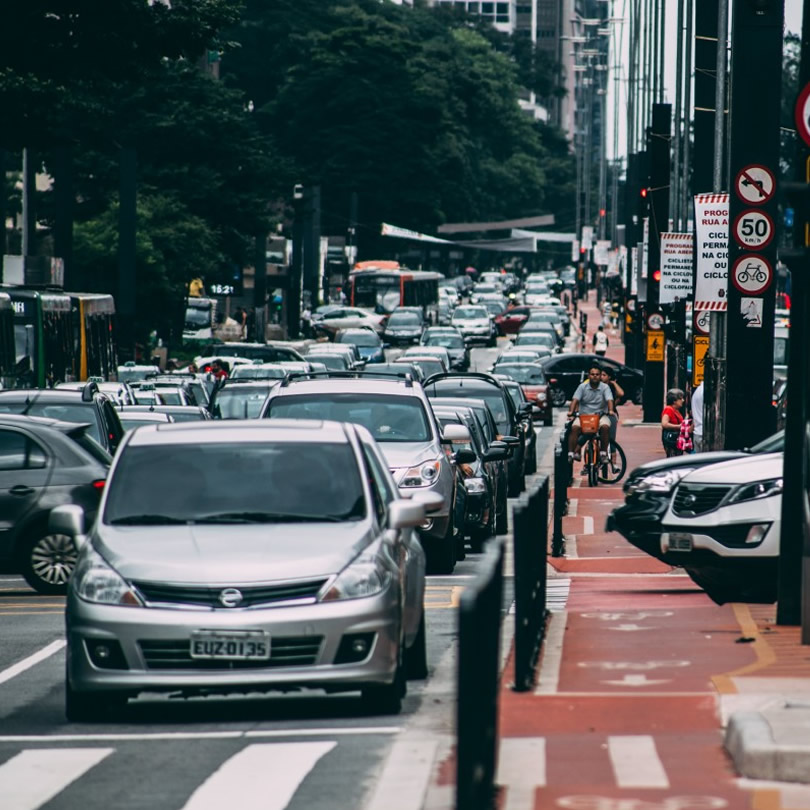
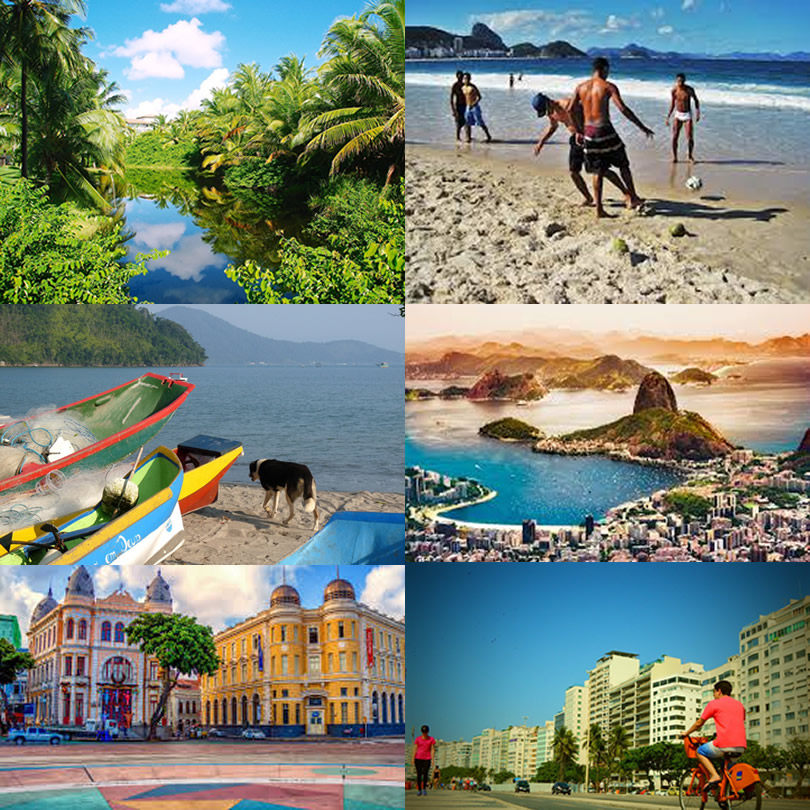
The most common dishes include varied meats, rice and Brazilian black beans (feijão), while restaurants often offer barbecues and buffets of all you can eat. Brazil also has many regional varieties of cuisine. An example is the cuisine of Bahia, which includes dishes such as: Vatapa (shrimp, fish oil, coconut milk, bread and rice), Sarapatel (liver, heart, tomatoes, peppers, onions and sauce). From Rio Grande do Sul, a typical dish is the Churrasco (a kind of barbecue). From the Amazon comes Tacaca (thick soup with prawns and garlic).
Brazil’s climate varies from tropical in the north to temperate in the south. Throughout the country, however, clothing is informal. Generally, light cotton shirts, shorts, dresses and pants are ideal to wear during the day, while at night long-sleeved shirts and leather shoes are normal. Normally you will not need a jacket and tie in Brazil. In its winter (June / September) it is worth bringing something hot, since the temperature can be quite cold in the south of the country.
As with food, in a country the size of Brazil there are many local specialties for the buyer. In most major cities, shopping centers are open late (until 10:00 p.m.), while street stores close at 6 p.m. Good quality arts and crafts are available in the regular outdoor markets, which are colorful and entertaining places for tourists to visit.
A significant part of Brazilian culture and the Brazilian of leisure centers around the beach. Thus, the beaches can be very fun and relaxing places. Do not forget the sun in Brazil can focus more directly and more strongly than in Europe, and take precautions. Certain areas, especially in Rio de Janeiro, have dangerous currents. Knowing this, stay close to other bathers and obey the warning flags: Red – Danger. It is strongly discouraged to enter the sea. White: The water is safe.
In most restaurants and bars, a service fee of 10% is added to the bill. The most sophisticated places can add 15%. If the service is not included, it will be indicated at the bottom of the invoice: “Serviço não incluido”. Taxi drivers do not expect a tip, but it is normal to round the final price. You should keep in mind that the amount shown on the meter may not always correspond to the amount you have to pay: look for a separate sheet attached to the window that will tell you how much the amount is in the meter.


